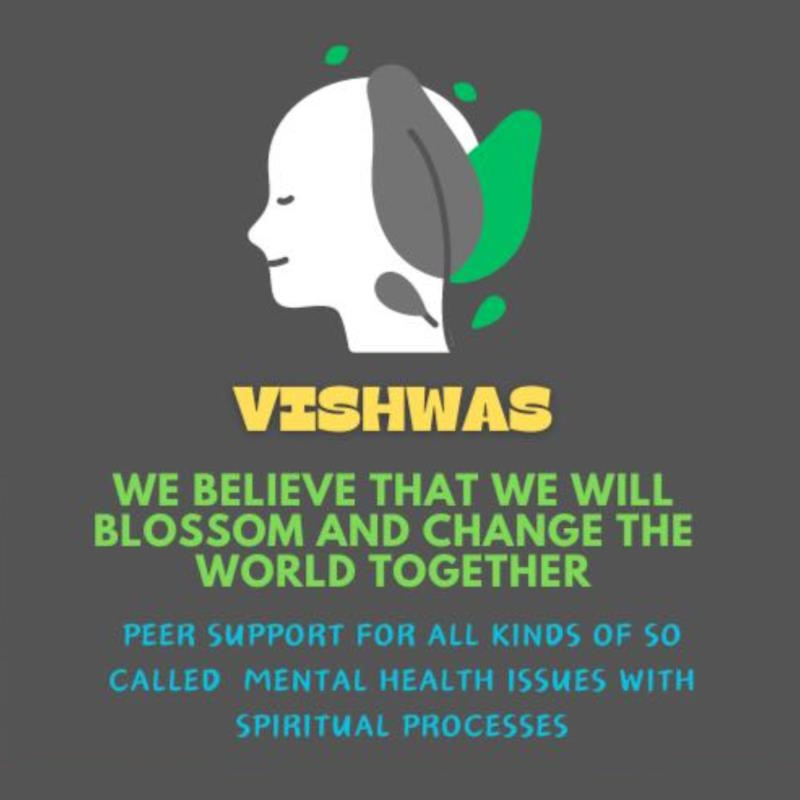"Peer Support — Vishwas"
...scanning for sectionsAuthentic Empathy and Validation
At its core, the peer support 'approach' assumes that people who have similar experiences can better relate and can consequently offer more authentic empathy and validation.
Peer support is generally described as promoting a wellness model that focuses on strengths and recovery: the positive aspects of people and their ability to function effectively and supportively, rather than an illness model, which places more emphasis on symptoms and problems of individuals. A short and all-encompassing definition of peer support as, 'a system of giving and receiving help founded on key principles of respect, shared responsibility and mutual agreement of what is helpful'.
It is defined as social, emotional support, frequently coupled with instrumental support, that is mutually offered or provided by persons having a mental health condition to others sharing a similar mental health condition to bring about a desired social or personal change.
Reduced Hospitalizations
It seems prudent to mention that a result of no difference demonstrates that people in recovery are able to offer support that maintains admission rates (relapse rates) at a comparable level to professionally trained staff.
The majority of the wider evidence on admission rates report positive results, suggesting that people engaging in peer support tend to show reduced admission rates and longer community tenure. There have been claims of 15-50% reduction in hospitalizations among patients who availed peer-support services.
Empowerment
A raised empowerment score has been reported in several studies of peer support attributed improvements in empowerment to the new ways of thinking and behaving that occur when engaging in reciprocal peer support relationships.
Furthermore, participants reported gaining control of their symptoms, and moving away from the traditional role of 'mental patient'. Several studies show improvement in self-esteem and confidence.
Social support and social functioning
Social isolation is often one of the most significant challenges faced by individuals with mental health problems. This is helped by meaningful relationships with peer-support workers.
Benefits for Peer Support Workers
Aiding continuing recovery: Giving peer support, like receiving it, results in increased sense of self-esteem and self confidence. In fact it has been shown that providing peer support is more beneficial than receiving it in terms of self-esteem, and empowerment.
Peer Support in India
Mental health burden and Treatment gap in India:
India's population in 2011 was 1.2 billion, and it was estimated that 1-2% of people have severe mental illness and an estimated 5% had mild to moderate mental disorders, thus an estimated 6.5% of population have mental illnesses. A more recent estimate suggests 13.7% of people have a lifetime risk of mental illness. According to a study published recently, about one third (37%) of global suicide deaths among women and about one-third (24%) of global suicide deaths among men occur in India. It has been estimated that about 150 million mentally ill people in India are in need of health care interventions. India has got a poor mental health workforce. There are only 0.3 psychiatrists per 100,000 populations against the WHO recommendation of 1 psychiatrist per 100,000 population. In addition to the shortage of psychiatrists there are shortages of nurses, psychologists, and social workers as well. In order to address this issue of huge burden of mental health disorders and huge shortage of mental health workforce, acceptance and practice of peer support is essential in India.
Although India has a vibrant innovation culture around task shifting/task sharing, there have been no attempts until recently to use peer support services for mental health. This is partly because of the mental health policy and the Mental Health Care Act in 2017, which does not provide provision for peer support services in a hierarchical structure of the mental health workforce in India.
Examples of Peer Support
A multi-national peer support intervention: the UPSIDES (Using Peer Support In Developing Empowering Mental Health Services (UPSIDES) project has been initiated.
There is another community based mental health outreach program which uses Peer Support is the Burans project in Dehradun and Yamuna Valley. Burans works with disadvantaged communities in Uttarakhand, to promote mental health wellbeing by building on their strengths and resources. They work with Expert by Experience group as their peer support group.
Then there is Eklavya Foundation for Mental Health, which provides mental health services in Marathi and English based in Pune.
These groups provide clear advice as to what the priorities should be and to ensure that the programs are contextually relevant and acceptable.
